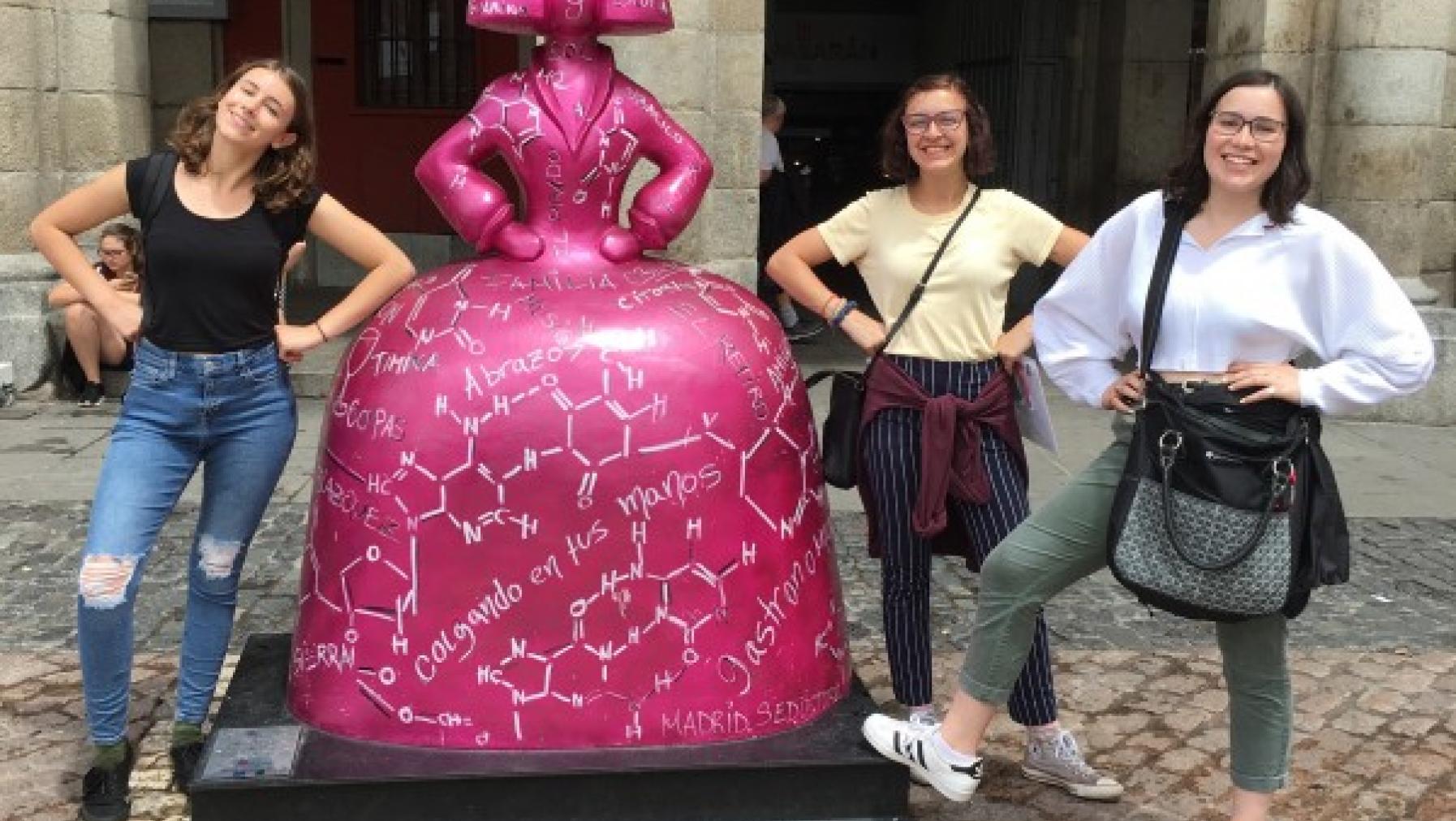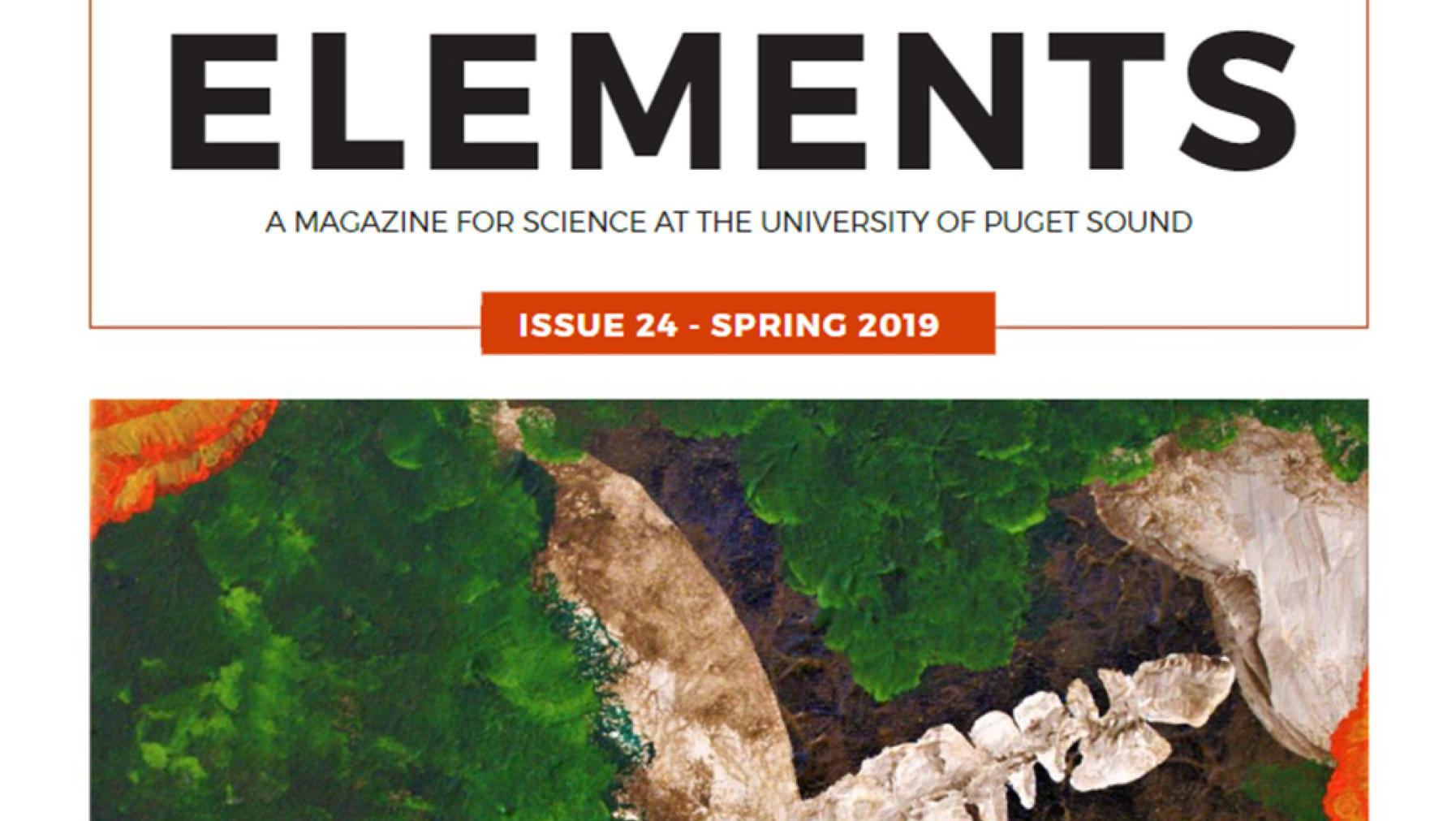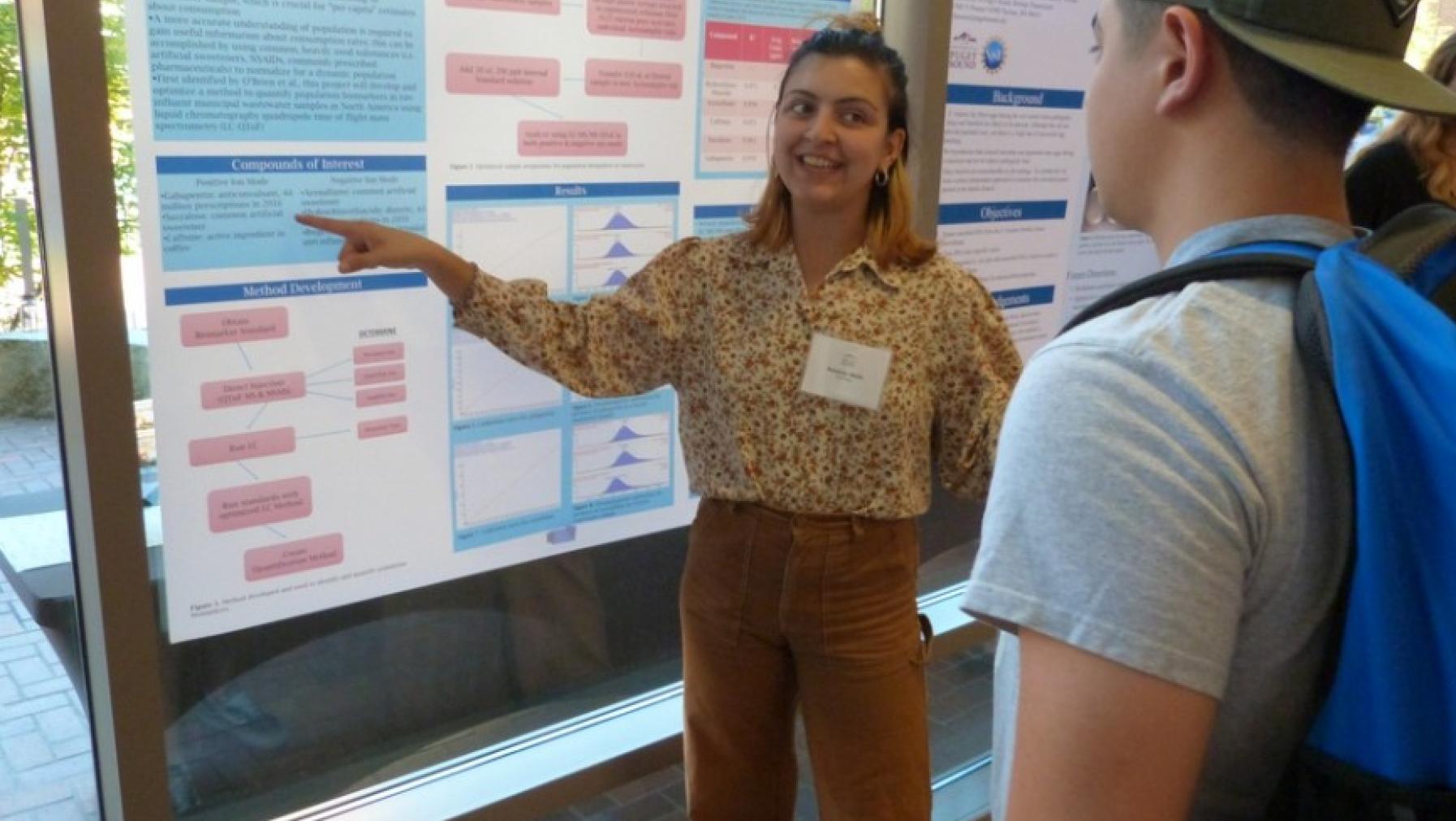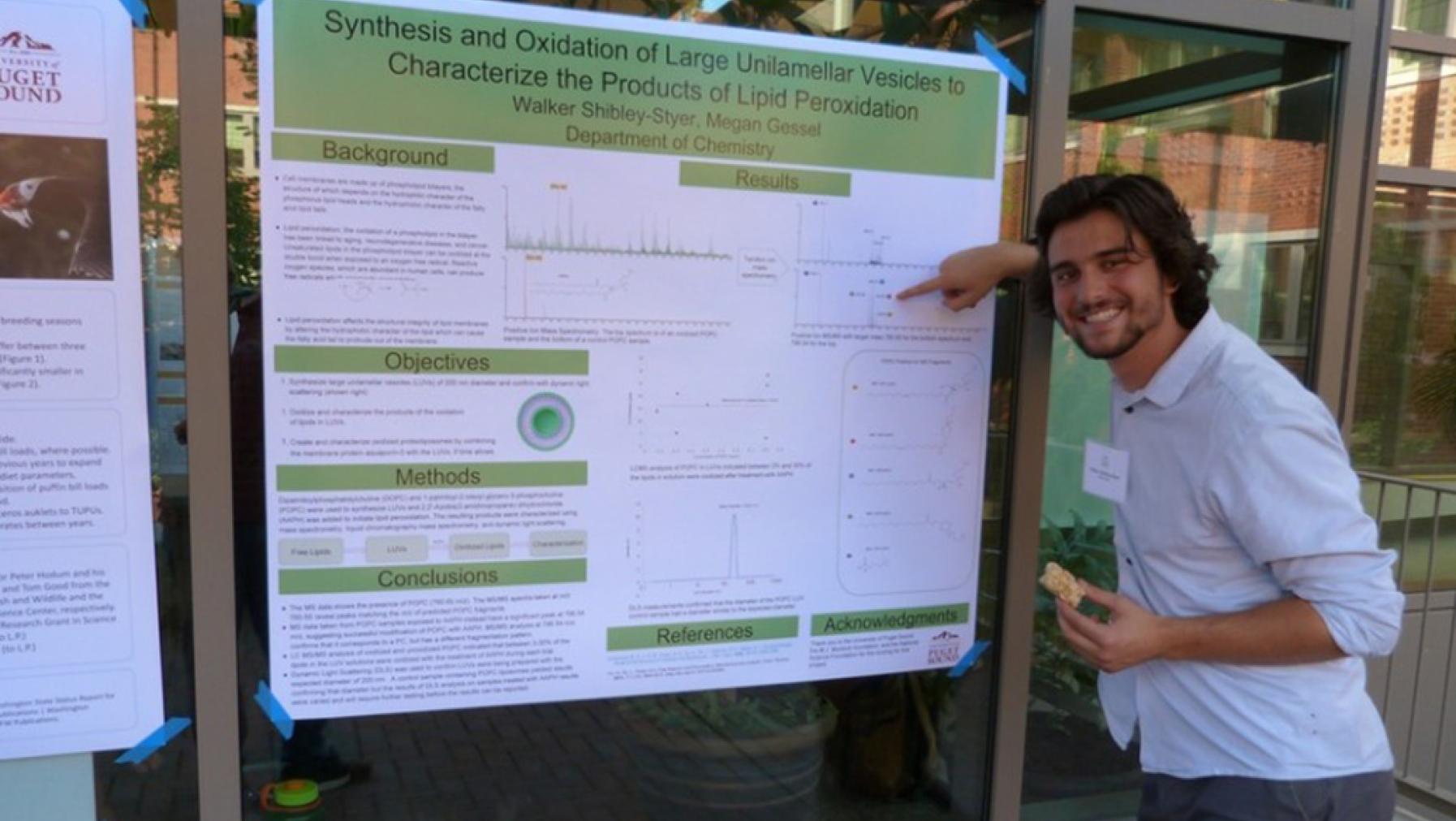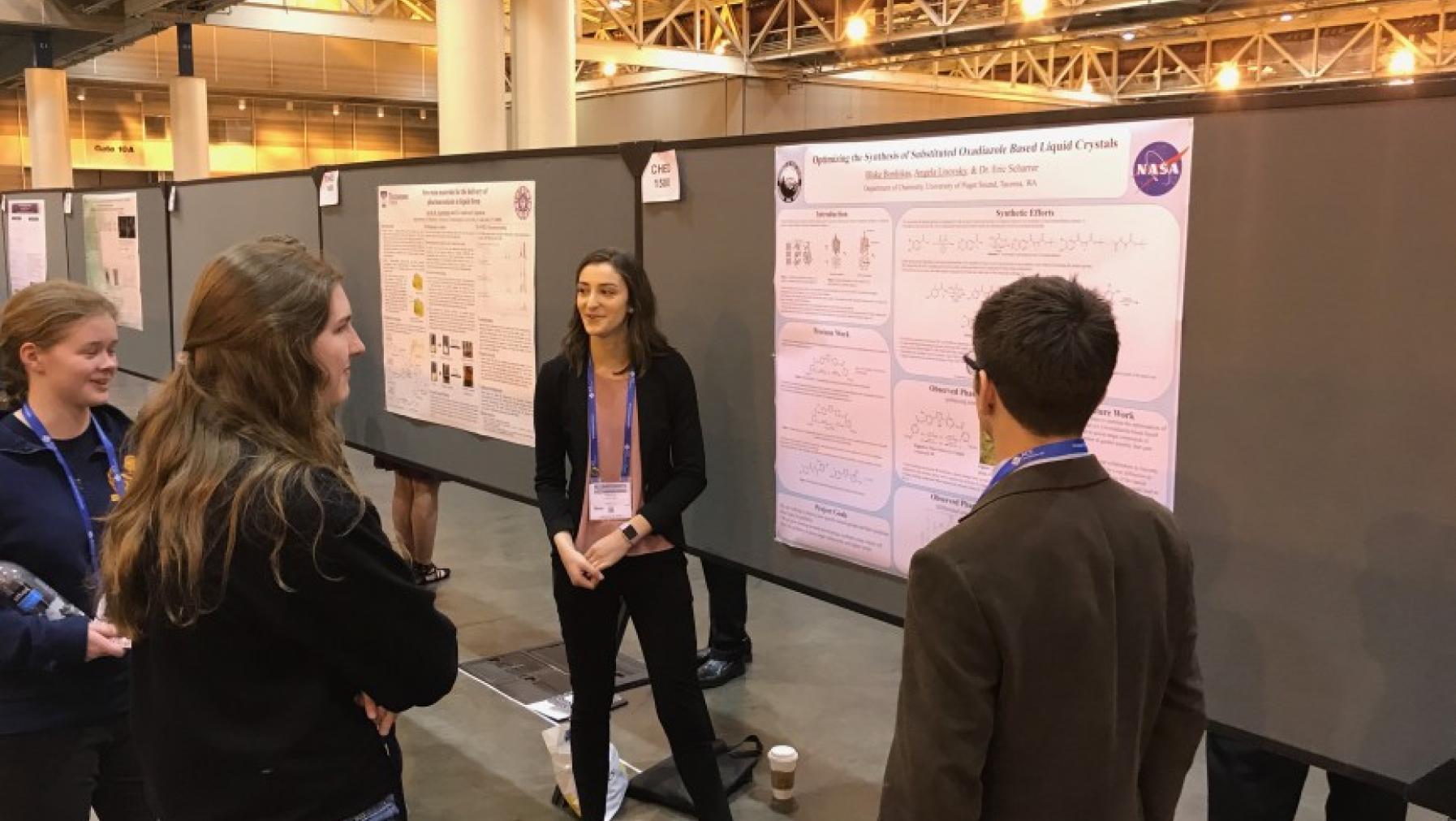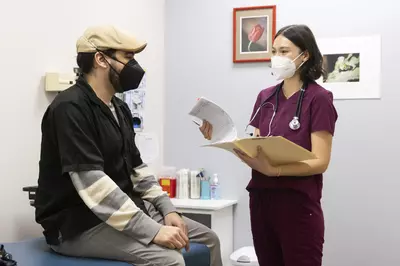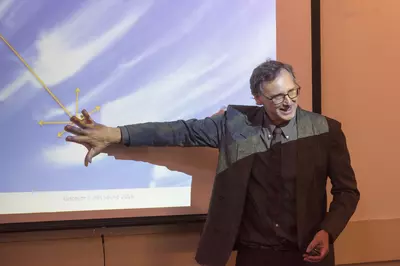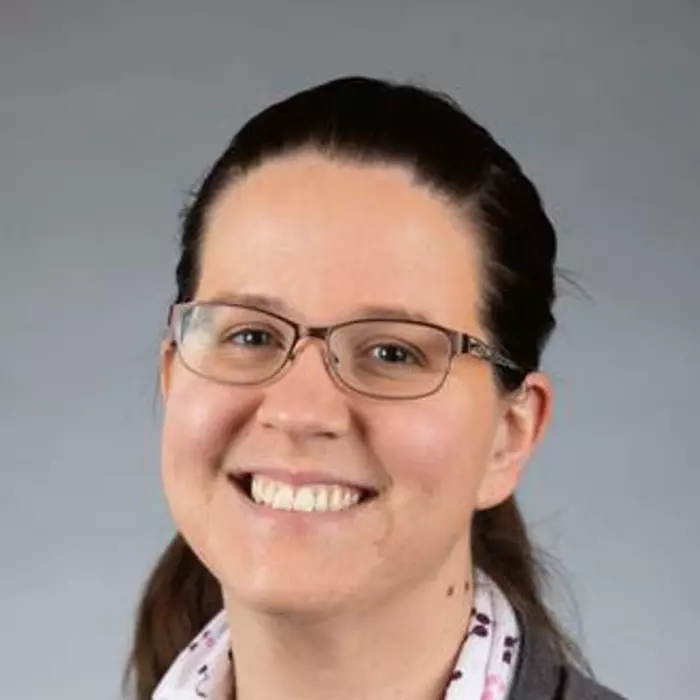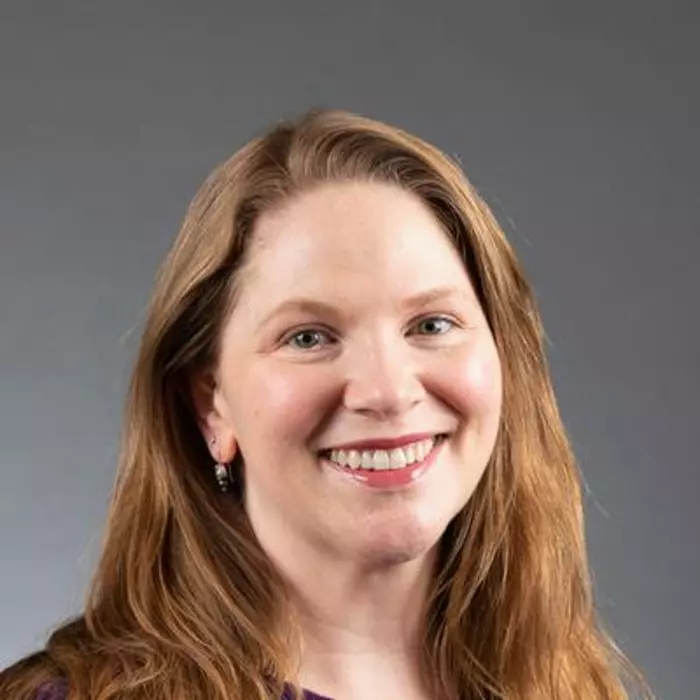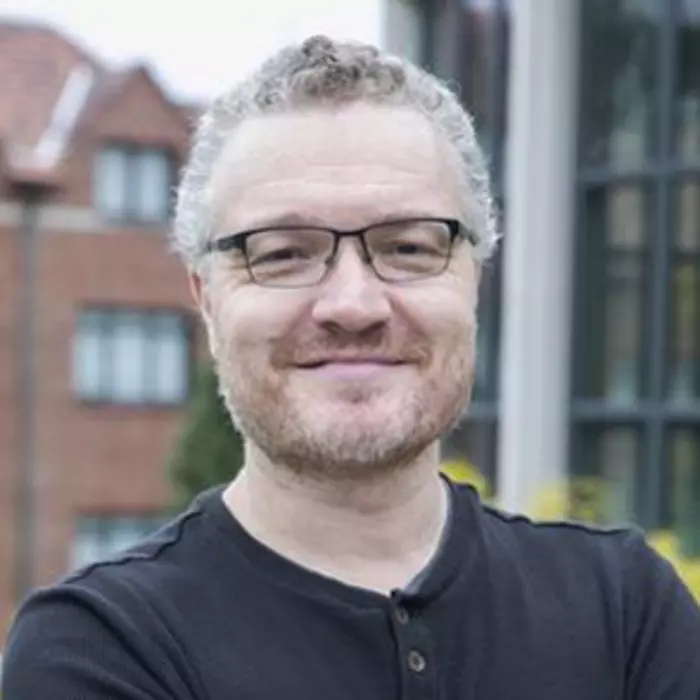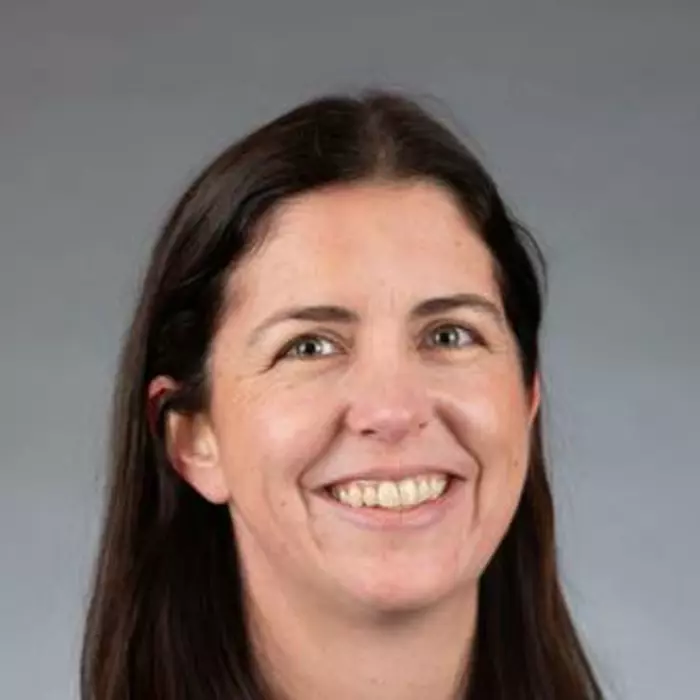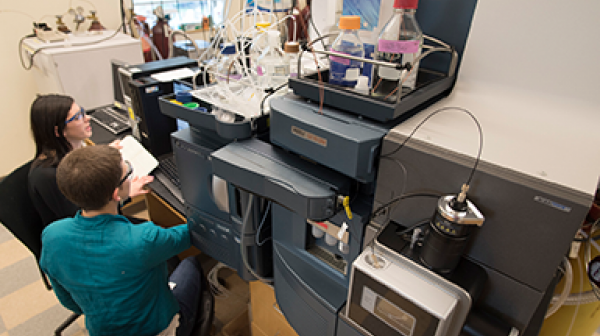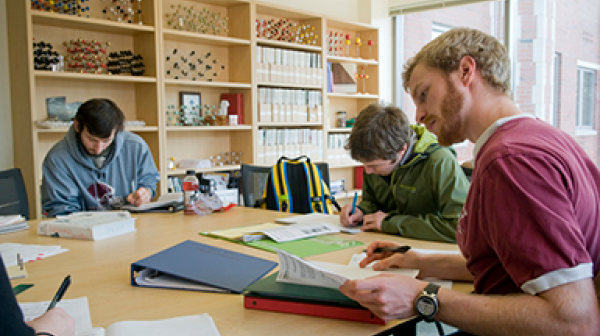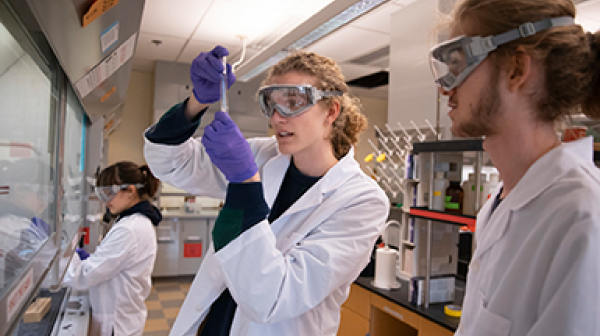Program Description
The chemistry and biochemistry department offers foundational courses in the five core chemical sub-disciplines: organic, physical, analytical, inorganic, and biochemistry. Additional elective courses explore a variety of topics, including computational chemistry, materials chemistry, food chemistry, environmental chemistry, and organic synthesis.
Classes are small, with fewer than 40 students in introductory-level chemistry lecture sections and 16 students in laboratory sections. Our faculty members are active researchers and work side by side with undergraduate students in the research lab. Many students engage in collaborative research with faculty in areas such as materials science, chemical biology, nanotechnology, biophysical chemistry, green chemistry, and climate science. Students have regular access to specialized state-of-the-art instrumentation and gain proficiency in a wide range of techniques. The small classes, abundant opportunities for independent research, and close and frequent interactions with faculty offer students the ideal environment for gaining a strong foundational training in chemistry or biochemistry.
Who You Could Be
- Research scientist in fields such as forensic science, toxicology, biotechnology, and environmental monitoring
- Environmental, civil, or chemical engineer
- Medical professional (including physician, nurse, dentist, pharmacist, and physical therapist)
- Science Teacher
- Analyst at a science policy institute
- Environmental or patent lawyer

"My chemistry background equipped me with scientific knowledge and technical skills that I would continue to use throughout graduate school and into my career."
What You'll Learn
- Foundational principles of chemistry and key concepts in specialized fields, such as materials science, nanotechnology, environmental chemistry, and climate science
- How to connect chemistry to current, real-world problems in society and the environment
- Laboratory techniques and how to use state-of-the-art analytical instrumentation
- How to use computers for data analysis, modeling, and visualization of chemical phenomena
- Scientific communication and literacy, including scientific writing, the presentation of research results, and how to read and interpret scientific literature

